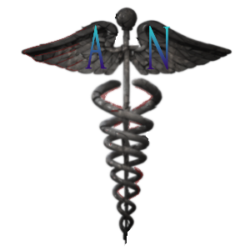What is Provision of health education and advise?
The provision of health education and advice in home-based nursing refers to the delivery of educational information and guidance to individuals and their families in the context of home care. Home-based nursing involves healthcare professionals, such as nurses or home health aides, providing medical care and support in the patient’s home. Health education and advice are essential components of home-based nursing care as they empower patients and their families to actively participate in their healthcare and manage health conditions effectively. Here are key aspects of providing health education and advice in home-based nursing:
1. Assessment:
- Conduct a thorough assessment of the patient’s health status, including their medical history, current health conditions, and any specific needs or challenges related to home-based care.
2. Individualized Education Plans:
- Develop individualized health education plans based on the patient’s unique needs, conditions, and treatment plans.
3. Medication Management:
- Educate patients and their families on proper medication administration, dosage schedules, potential side effects, and the importance of medication adherence.
4. Wound Care:
- Provide guidance on wound care protocols, including dressing changes, signs of infection, and steps to promote wound healing.
5. Chronic Disease Management:
- Offer education on the management of chronic conditions, including lifestyle modifications, symptom monitoring, and recognizing signs of exacerbations.
6. Nutritional Guidance:
- Provide nutritional advice tailored to the patient’s health needs, dietary restrictions, and any underlying medical conditions.
7. Home Safety:
- Educate patients and families on home safety measures, fall prevention, and creating a supportive environment for individuals with health challenges.
8. Monitoring Vital Signs:
- Train family members or caregivers on how to monitor vital signs, such as blood pressure, heart rate, and temperature, and when to seek medical attention.
9. Family Involvement:
- Encourage the involvement of family members in the patient’s care, providing them with the necessary information and skills to support the patient at home.
- 10. Communication Skills:
Teach effective communication skills, ensuring that patients and their families can express their concerns, ask questions, and communicate changes in the patient's condition.- 11. Crisis Management:
Provide guidance on what to do in case of emergencies or sudden changes in the patient's health status, including when to contact emergency services.- 12. Resources and Support:
Inform patients and families about available community resources, support groups, and additional healthcare services that can enhance their overall well-being.- 13. Technology Integration:
Integrate technology, when applicable, to remotely monitor patients, provide virtual consultations, and facilitate communication between the healthcare provider and the patient.- 14. Documentation:
Maintain thorough documentation of health education sessions, patient progress, and any changes in the care plan.- 15. Empowerment and Independence:
Focus on empowering patients to actively participate in their care, promoting self-management skills, and fostering a sense of independence.- The goal of health education and advice in home-based nursing is to enhance the patient’s understanding of their health conditions, improve self-care capabilities, and contribute to better health outcomes within the familiar and comfortable environment of their own home.

